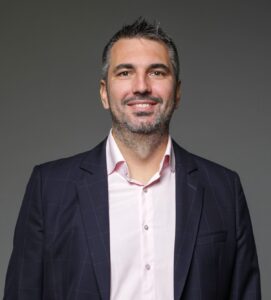Special sessions
At the ISGT2024 conference, 8 special sessions, listed below, will be presented:
- Nordic Early Warning Early Prevention System
- TRANSIT project – TRANSITion to sustainable future through training and education
- Digitalization in Power Systems – a Key Enabler of the Energy Transition
- IEEE PES Women in Power “Challenges in advanced power system planning and operation”
- How Digitalization Supports Flexibility Levers in the Decarbonization of Power Systems
- HVDC-WISE special session on tools, modelling, and control for the development of reliable and resilient widespread HVDC grids
- Cyber-physical perspective of smart grid stability, security and resilience towards a net-zero energy transition
- OPF and REANIMATION projects special session
Nordic Early Warning Early Prevention System
Time: TBD
This panel will present final results of the Norwegian-Swedish research project NEWEPS – Nordic Early Warning Early Prevention System. The research conducted in the NEWEPS project are intended to provide the Transmission System Operators (TSOs) with increased insights into functional and non-functional requirements on Wide-Area-Monitoring-Protection-and-Control (WAMS / WAMPAC) systems. The main focus of the work has been on increased situational awareness for operators, development of novel Energy Monitoring System (EMS) solutions and evaluation of visualization techniques. Towards the end of the NEWEPS project, a road map will be created with the intention to support the development and future implementation of WAMS and WAMPAC systems at the Swedish and Norwegian TSOs.
The main messages of this panel relate to the lessons learned, main conclusions and results, and the proposed way towards implementation. At the panel, the following issues to be addressed:
- Background and needs of a Wide-Area monitoring control and protection system
- Research and development of Voltage stability indicators
- Research and development of identification and classification of Natural and Forced oscillations
- Research and development of Wide-Area-Control concepts
- Research and demonstration of Advanced vizualisation concepts
- Research and demonstration of a Platform for monitoring applications and operator interaction
Moderated by: Robert Eriksson, Professor & Power system specialist, Uppsala University & Svenska kraftnät, Sweden
Panelists:
- Kjell Petter Myhren, Senior Advisor R&D in System and Market Operation, Statnett, Norway
email: kjell.myhren@statnett.no - Henrik Ekestam, Power system specialist, Svenska kraftnät, Sweden
email: Henrik.Ekestam@svk.se - Valéria Monteiro de Souza, PhD candidate, NTNU, Norway
email: valeria.m.de.souza@ntnu.no - David Bergman, PhD candidate, KTH, Sweden
email: dabergm@kth.se - Salvatore D’Arco, Chief Scientist, SINTEF, Norway
email: salvatore.darco@sintef.no - Erik Weihs, Research engineer, RISE, Sweden
email: erik.weihs@ri.se
TRANSIT project – TRANSITion to sustainable future through training and education
Time: TBD
This Special Technical Session examines the crucial role of education and skill development in navigating the pathway to a global energy transition. It will include some results of project TRANSIT funded by the European Union, under the program Horizon Europe, and UKRI. TRANSIT (which stands for TRANSITion to sustainable future through training and education) aims to provide sustainable training and re-skilling programmes for current and future generations on a multidisciplinary approach in renewable energy.
The results shown in the session will focus on innovative educational strategies that empower professionals and students to understand, embrace, and lead the energy transition. It includes an exploration of curricula, training programs, and collaborative initiatives aimed at upskilling and reskilling a workforce capable of steering the world towards a more sustainable and resilient energy future.
Moderated by: Araceli Hernandez Bayo, Universidad Politécnica de Madrid, Spain
Panelists:
- Brian Azzopardi: TRANSIT project overview
- Petar Krstevski: Supporting the process of energy transition: Development of training curriculum for skill augmentation
- Markos Asprou: Energizing the Future: Social Dynamics in the Global Transition to Renewables
- Brian Azzopardi: Gamification in renewable teaching
- José Miguel Riquelme: Promoting Renewable Energy to Young Students through an Escape Room
- Lidija Korunović: Awards to highlight and promote sustainability in renewable energy led by example
Digitalization in Power Systems – a Key Enabler of the Energy Transition
Time: TBD
Along with Decarbonization and Decentralization, Digitalization is one of the pillars of successful energy transition. It is enabled by an ever-growing proliferation of monitoring devices and supported by data aggregators and powerful data processors to enhance observability of the energy system, help us understand its response to new operating conditions driven by domination of renewable sources, and extend the lifetime of its assets.
This special session will shed light on the main opportunities and challenges associated with digitalization in the power system, spanning from power system stability assessment and control, and the role of machine learning in facilitating these, to the detection of cyber attacks in cyber-physical smart grids. An important part of the session will be dedicated to education for the digitalization of power systems, identifying the skill gaps and sharing some good practices in postgraduate courses on digitalization of energy.
Moderated by:
 |
Name: Dr Marina Oluić Title: Power System Specialist Affiliation: Svenska kraftnät (Swedish National Grid) Country: Sweden E-mail: marina.oluic@svk.se |
Panelists:
 |
Name: Dr Ambra Sannino Title: Vice President, Research and Development Affiliation: Vattenfall Country: Sweden E-mail: ambra.sannino@vattenfall.com |
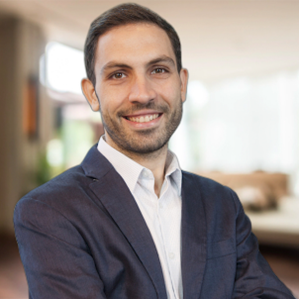 |
Name: Dr Charalambos (Harrys) Konstantinou Title: Assistant Professor Affiliation: King Abdullah University of Science and Technology (KAUST) Country: Saudi Arabia E-mail: charalambos.konstantinou@kaust.edu.sa |
 |
Name: Dr Panagiotis Papadopoulos Title: Reader (Associate Professor) Affiliation: The University of Manchester Country: United Kingdom E-mail: panagiotis.papadopoulos@manchester.ac.uk |
 |
Name: Dr Aleksandra Lekić Title: Assistant Professor Affiliation: TU Delft Country: Netherlands E-mail: A.Lekic@tudelft.nl |
 |
Name: Dr Panos Kotsampopoulos Title: Principal Researcher Affiliation: Institute of Communication and Computer Systems, National Technical University of Athens Country: Greece E-mail: kotsa@power.ece.ntua.gr |
IEEE PES Women in Power “Challenges in advanced power system planning and operation”
Time: TBD
Anyone interested in participating in this special session, please contact: mirna.grzanic@fer.hr via email.
Moderated by:
 |
Name: Mirna Gržanić Antić Title: Assistant Professor Affiliation: University of Zagreb Faculty of Electrical Engineering and Computing Country: Croatia E-mail: mirna.grzanic@fer.hr |
Panelists:
 |
Name: Dr. Martha Symko-Davies Title: Affiliation: National Renewable Energy Laboratory (NREL) Country: USA E-mail: |
Presentation 1: “Future Flexible Scalable Solutions that Achieve Just Energy Transitions”
Abstract:
 |
Name: Dženana Tomašević Title: Affiliation: University of Zenica – Faculty of Mechanical Engineering Country: Bosnia and Herzegovina E-mail: |
Presentation 2: “Machine Learning-Based Short-Term Load Forecasting”
Abstract:
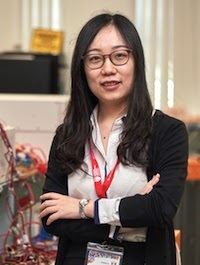 |
Name: Qianwen Xu Title: Associate professor Affiliation: KTH Royal Institute of Technology Country: Sweden E-mail: |
Presentation 3: “Safe Deep Reinforcement Learning for Renewable Energy Integrated Power System”
Abstract:
 |
Name: Carolina Tranchita Title: Professor Affiliation: Frankfurt University of Applied Science Country: Germany E-mail: |
Presentation 4: “Stability Challenges in Modern Power Systems with Extensive Power Electronics”
Abstract:
How Digitalization Supports Flexibility Levers in the Decarbonization of Power Systems
Time: TBD
Policies are being gradually implemented to address climate change by pushing for the replacement of fossil-fueled generation with distributed renewable energy resources to achieve power systems decarbonization. The massive incorporation of DER presents resilience challenges due to their variability. Flexibility levers, like energy storage systems, can help address some of these challenges, but there are still significant barriers to modeling, integrating, and deploying such solutions. This panel will discuss best practices, state-of-the-art approaches, and key challenges related to the planning and operations of the grid with flexibility levers provided with any kind of flexibility levers. Critical tools such as digital twins or artificial intelligence could be considered to solve issues raised in various applications, from large-scale networks to smaller and more recent grid-connected energy systems, like energy communities.
Moderated by:
 |
Name: Dr Vincent Debusschere Title: Associate Professor Affiliation: Grenoble INP UGA Country: France E-mail: vincent.debusschere@grenoble-inp.fr |
Panelists:
 |
Name: Pr. Geert Deconinck Title: Professor Affiliation: KU Leuven Country: Belgium E-mail: geert.deconinck@kuleuven.be |
Presentation 1: “Energy flexibility needs privacy-by-design digital solutions”
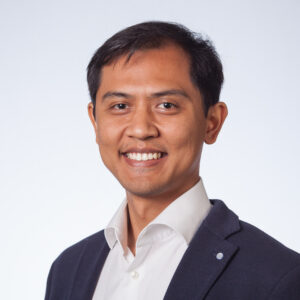 |
Name: Wicak Ananduta Title: Researcher Affiliation: VITO Country: Netherlands E-mail: |
Presentation 2: “Market-based flexibility provision from distribution system resources”
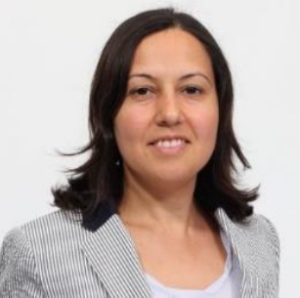 |
Name: Dr Nuran Cihangir Martin Title: Grid Strategist Affiliation:Stedin Country: Netherlands E-mail: Nuran.CihangirMartin@stedin.net |
Presentation 3: “Network Observability and State Estimation at Low-Voltage Distribution Grids to Exploit Flexibility: Practical Considerations”
| Name: Alejandro Yousef da Silva Title: Research Affiliation: Schneider Electric Country: France E-mail: alejandro.yousefdasilva@se.com |
Presentation 4: “Optimizing Microgrid Operations for Effective CO2 Emission Reduction”
HVDC-WISE special session on tools, modelling, and control for the development of reliable and resilient widespread HVDC grids
Time: TBD
The development of reliable and resilient HVDC dominated power grids in the coming decades presents many challenges, necessitating a range of new analysis tools, models, and control approaches. The Horizon Europe and UKRI funded HVDC-WISE project seeks to address many of these challenges, through the development of an integrated reliability and resilience analysis framework for widespread hybrid AC/DC grids. In this session project participants will discuss methodologies and tool developments, modelling challenges, and control frameworks that have been developed within the project to date
Moderated by: Lukas Sigrist
Panelists:
 |
Name: Lukas Sigrist Short bio: Lukas Sigrist is an associate professor at Instituto de Investigación Tecnológica (IIT) of Universidad Pontificia Comillas, Madrid, and its deputy director of Economic Affairs. His areas of interest are modeling, analysis, simulation, and identification of electric power systems. He has been involved in a large number of research projects related to power-system stability, control and protection and power-system operation. E-mail: lukas.sigrist@iit.comillas.edu. |
Presentation 1: “Tools for Reliability and Resilience-Oriented Planning and Operation of hybrid AC/DC power systems”
Authors: Seyedsina Hashemi, Mathaios Panteli, Mateo Baù, Emanuele Ciapessoni, Diego Cirio, Andrea Pitto, Gianni Bakhos, Nicolas Barla, Abdelkrim Benchaib, Boussaad Ismail, Paul McNamara, Callum MacIver, Aurelio García, Saeed Rezaeian, Lukas Sigrist.
 |
Name: Chavdar Ivanov Short bio: Chavdar Ivanov – Managing Director of gridDigIt. He supports TenneT TSO GmbH on various topics. He has M.Sc and PhD degrees in power system engineering. Chavdar has more than 20 years of experience in activities of transmission system operators mainly in the areas of power system analysis, power system modelling, data/model management and R&D. He is a senior member of IEEE, member of Power System Dynamics Performance Committee. He is actively contributing to IEC committees on data exchange and wind modelling related standards. His main field of interest is related to power system modelling, stability studies and data exchanges. E-mail: chavdar.ivanov@griddigit.eu |
Presentation 2: “Standardized Model Exchange of HVDC Equipment for RMS and EMT Simulations”
Authors: Chavdar Ivanov, Georgii Tishenin, Damiano Lanzarotto, Florent Morel, Antonello Monti
 |
Name: Antoine Knockaert Short bio: Antoine Knockaert joined Tractebel in 2023 as a Power Systems Engineer. He obtained his Master’s Degree in Electrical Engineering, with an emphasis on Power Systems, at UCLouvain (Belgium). During his time with Tractebel, Antoine has been working on multiple project around the world including grid compliance studies of renewable and storage units, power system stability studies as well as research projects on HVDC technology. His main interests revolve around HVDC systems and tackling the challenges of mass integration of renewable sources in power systems. E-mail: antoine.knockaert@engie.com |
Presentation 3: “Supervisory control of Bipole-based Multi-Terminal HVDC grids using Model Predictive Control including asymmetric operation”
Authors: Antoine Knockaert, Lampros Papangelis, Pieter Tielens, Karim Karoui
 |
Name: Ying Pang Short bio: Ying Pang is currently working toward his PhD in SuperGrid Institute, focusing on grid-forming control in multi-terminal HVDC systems and its stability analysis. He obtained his M.Sc from Aalborg University, Denmark and since then has been engaged in different research and product development positions in both academia and industry, in the fields of power electronics and control E-mail: ying.pang@supergrid-institute.com |
Presentation 4: “Investigations on the Effects of DC Voltage Control on Inertia Provision in HVDC Converter Stations”
Authors: Ying Pang, Agustí Egea-Àlvare, Juan-Carlos Gonzalez, Filipe Perez, Abdelkrim Benchaib, Kosei Shinoda
Cyber-physical perspective of smart grid stability, security and resilience towards a net-zero energy transition
Time: TBD
Smart grid technologies, such as big data, machine learning, and internet-of-things, are gaining significant attention for their potential to drive the net-zero transition. A crucial development in this area is the emergence of cyber-physical systems, which integrate advanced computational algorithms with physical processes. This innovative approach further standardizes future smart grids in terms of both grid stability and security, as well as linking resilience to future decarbonization pathways.
This special session will offer valuable insights into the opportunities and challenges posed by the cyber-physical revolution in smart grids. Topics will include cyber-physical stability, security, and resilience in smart grid control, operation, and trading, all aimed at achieving a net-zero transition. A key focus will be on the inevitable cyber-physical couplings, examining how can impacts from the cyber layer affect physical layer operations, and further identifying critical components or couplings that could potentially help accelerate the smart grid’s decarbonization pathways.
Panelists:
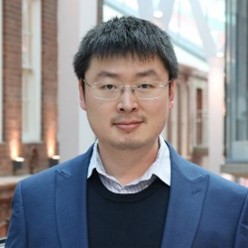 |
Name: Xin Zhang Title: Chair Professor Affiliation: University of Sheffield Country: UK E-mail: xin.zhang1@sheffield.ac.uk |
Presentation 1: “Cyber-Physical Power System Digital Co-Simulation ”
Abstract: This presentation introduces the real-time digital co-simulation platform for cyber-physical power system, which focuses on the co-simulation interface development between power and communication simulators. The co-simulation platform analyses the cyber vulnerabilities in microgrid control, with the optimal co-design of recursive watermarking technique and embedded Unknown Input Observer for the effective cyberattack detection.
 |
Name: Qianwen Xu Title: Associate Professor Affiliation: KTH Royal Institute of Technology Country: Sweden E-mail: qianwenx@kth.se |
Presentation 2: “Resilient Control of Cyber Physical Microgrids under Cyberattacks ”
Abstract: Ensuring secure and resilient energy systems is essential for a sustainable, cyber-resilient future. This talk will present a novel resilient control approach for cyber-physical microgrids to achieve accepted performance under discrete-time false data injection (FDI) and denial-of-service (DoS) attacks.
 |
Name: Jin Zhao Title: Assistant Professor Affiliation:Trinity College Dublin Country: Ireland E-mail: zhaoj6@tcd.ie |
Presentation 3: “Adversarial Learning Method for Power Grid Resilient Defense Against Sequential Events ”
Abstract: The presentation introduces a combined adversarial learning and deep reinforcement learning method to realize adaptive resilience defense by network reconfiguration. Accordingly, the survival of critical loads during sequential extreme events (SEE) such as hurricanes and tornadoes is greatly improved.
 |
Name: Pudong Ge Title: Research Associate Affiliation: Imperial College London Country: UK E-mail: pudong.ge19@imperial.ac.uk |
Presentation 4: “Cyber-Physical Restoration for Power Network Resilience: A Drone-Assisted Communication Coverage Approach ”
Abstract:This talk will propose a jointly cyber-physical framework for post-contingency service restoration aimed at enhancing resilience, which leverages mobile resources that combine both cyber and physical capabilities (i.e., drone communication hub and mobile power source). Within the proposed framework, drones are strategically assigned throughout the power grid to facilitate post-contingency communication coverage.
 |
Name: Dawei Qiu Title: Research Fellow Affiliation: Imperial College London Country: UK E-mail: d.qiu15@imperial.ac.uk |
Presentation 5: “Smart Grid Decarbonization Technologies ”
Abstract: This presentation introduces a carbon-aware electric vehicles (EVs) power scheduling scheme using a carbon emission flow model in the context of a cyber-physical power-transport network. Utilizing data-driven reinforcement learning algorithm with graph convolutional networks, the scheme facilitates a more informed decision-making process. The findings highlight transport electrification’s role in advancing toward net-zero carbon targets
 |
Name: Weiqi Hua Title: Assistant Professor Affiliation: University of Birmingham Country: UK E-mail: w.hua@bham.ac.uk |
Presentation 6: “Blockchain-Based Joint Energy and Carbon Trading ”
Abstract: This presentation introduces a blockchain based peer-to-peer trading framework to trade energy and carbon allowance. The bidding/selling prices of prosumers can directly incentivise the reshaping of energy patterns to achieve local energy balance and net-zero energy system transition. A decentralised low carbon incentive mechanism is formulated targeting on specific energy patterns
OPF and REANIMATION projects special session
Project REANIMATION: A system for coordinated provision of flexibility to the power system using advanced households; NPOO.C3.2.R3-I1.02.0002
This session will present the ongoing work and preliminary findings from a project “A system for coordinated provision of flexibility to the power system using advanced households; NPOO.C3.2.R3-I1.02.0002” focused on integrating households into the process of balancing the power system, particularly in managing the variability of renewable energy sources. As renewable energy production continues to grow, driven by weather-dependent sources like solar and wind, it is becoming increasingly important to involve consumers in grid balancing. The project is addressing this challenge by developing two key solutions aimed at enabling households to participate in energy management without affecting their comfort or requiring significant time commitment.
The first solution being developed is an automated system that facilitates interaction between households and energy aggregators. This system will allow households to provide flexibility to energy markets such as day-ahead, intraday, and reserve markets. The goal is to manage household energy consumption efficiently, adjusting appliance use based on grid needs while ensuring user comfort remains unaffected.
The second solution involves household virtualization, which creates a platform for large-scale testing and coordination of household energy consumption. This platform will enable simulations of coordinated energy management across numerous virtual households, using real-time data collected from actual homes. This approach is intended to allow extensive testing and provide insights into how such systems could be applied at scale in real-world environments.
The discussion will focus on the motivation for involving households in energy system balancing, the current progress in developing automated household energy management systems, and how households could provide flexibility to energy markets. Additionally, the session will include a demonstration of the household virtualization platform, exploring its potential for large-scale testing and coordination of energy use.
Speaker:
Project OPF: Tool for the Power System Preventive Redispatch Based on AC Optimal Power Flow; NPOO – 2021.-2026.
The project develops and refines a method for computing optimal AC power flows and creates a real-time tool for transmission system operators. The advantage of the tool compared to those currently on the market is that the model used solves the exact nonlinear model in a short time while supporting controllable devices modeled in detail according to actual industrial characteristics. The tool supports computations for active and reactive power as well as security redispatch. Parameters of the tool, such as the activation sensitivity limit of controllable devices, are adjustable for efficient and broad use in any transmission network. The expected results are a reduction in active power losses and a decrease in activation costs compared to existing solutions. The project includes a demonstration of the tool’s operation on a real system and, for this purpose, develops an interface and processes data from existing software packages available to dispatchers of the transmission system operator
Speaker:




